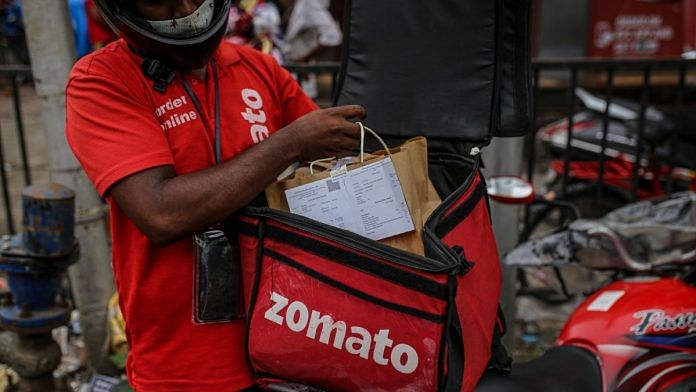In the past few weeks, I noticed the duality of dialogue on Twitter. On one hand, there were hundreds of memes and threads in awe of the Zomato IPO, and on the other, there were the troubled voices of the multimillion-dollar food company’s exploited delivery executives. That got me thinking that it is time for us to press pause on our plans of ordering that mouth-watering pizza with extra toppings and have an honest conversation.
Gig economy and exploitation
Take a moment to think about those who make satisfying your 3 a.m. cravings possible. They are a part of the gig economy, a labour market typically run on the prevalence of freelance as opposed to permanent workers. The gig economy undeniably promotes newer employment avenues, autonomy, flexibility and task variety. However, the dark side of it cannot go unnoticed. Gig workers are categorised as ‘independent contractors’ or ‘independent entrepreneurs’. This means that they do not get any of the benefits that employees of the organised sector get. As a result, the monsters of low pay, irregular working hours, overwork, and poor mental health haunt them. Finance Minister Nirmala Sitharaman promised the extension of social security benefits to gig workers earlier this year, but there has been no real implementation of this. One might ask, why then can’t these workers seek redressal under our detailed labour laws? Classifying gig workers as ‘independent contractors’ instead of ‘employees’ means that these laws do not apply to them, and they are left without any practical protection.
What is the position of the law?
Surprisingly, the understanding of the law does not oppose giving these delivery executives the ‘employer’ tag. In this context, the Supreme Court has laid down two relevant factors that need to be tested in order to determine the existence of an employee-employer relationship – first, the control exercised on the worker, and second, their level of integration into the employer’s business. Additionally, the Court laid down certain factors in the case of Workmen of Nilgiri v. Tamil Nadu as essential in understanding if an employee-employer relationship exists – the role of the paymaster, the power of dismissal and the nature of job.
When it comes to the first test, there is no doubt that in the food delivery business, the degree of control exerted is proportional to the efficiency obtained. Positing workers in certain areas, assigning them orders on the basis of their location, exercising the power to dismiss them, deciding how much they get paid, etc. all amount to exerting control. The delivery executives are first interviewed to be listed on the platform. Then, the rates charged per delivery are fixed by the aggregator and the executives cannot negotiate these with the customers. Finally, the route to be taken for the delivery is fixed by the aggregator. Any consumer complaints lead to penalties on the money earned by these workers. Moreover, the ‘flexibility’ aspect of the gig economy is also questionable in the food delivery business. Obviously, the consumer demand will be the highest during meal times when compared to other points during the day. Also, subjecting executives to a ‘rating system’ amounts to performance management and disciplinary control.
Even then, companies like Zomato argue that there is no component of ‘control’ involved because the executives can log out and decline a certain job as per their own will. However, if the workers choose to do what they wish to (say, log out for long hours), they can be penalised with a reduction in their earnings and number of future orders. As emphasised in K.S. Puttaswamy v. Union of India, ‘free will’ requires an individual to possess the capacity to control their own behaviour, independent of external influences. Providing incentives and disincentives goes against the very basic understanding of free will and most definitely leads to a system of control. The second test can be applied by scrutinising whether a worker is fully integrated into an employer’s business or remains independent from it. Delivery executives form the core of a food delivery business and are undoubtedly fully integrated into it.
Also read: Social security soon for freelancers, Zomato-Swiggy delivery personnel, Ola-Uber cab drivers
What needs to be done
Labour courts and tribunals across several countries have recognised that these workers must be classified as ‘employees’ and given all the associated benefits – right from mandatory savings to insurance. It is time that this much-needed change is brought to India too. The grievances and voices of the executives need to be heard, amplified, and given effect to. Till then, I am going to look out for the red men, and not get-rich-quick IPOs. You should too.
Ishika Garg is a student of National Academy of Legal Studies and Research [NALSAR], Hyderabad. Views are personal.



